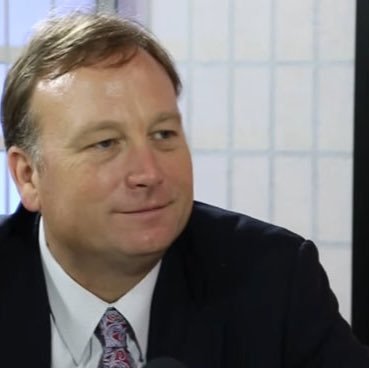Good morning everyone:
It is was an extraordinary, if not immensely tiring, week for one and all — and it was just one day.
Many of you perhaps didn’t think you would need camping gear when you trooped to the Capitol early in the morning Thursday.
I am sure a sleeping bag and pillow might have helped, although you can always be thankful for the snack bar being open.
We can only say we did an all-nighter once before at the Capitol, back in 2011, our first foray into Kansas politics.
Can still remember interviewing the late Arlen Siegfried seated on the steps of the dais at the front of the House chamber while seeing the purplish sky as the sun rose outside.
This year, we were in the basement, so there was no vista to be seen.
There were a lot of interesting bills that passed that night (or morning) in 2011, some perhaps just as controversial as anything that passed Friday morning.
Now, many of you have scattered to the four corners of the state, and we wait to see just how different the Legislature will look next year — assuming, of course, we don’t need any kind of special session this year.
Now onto the most significant stories that we published last week as well as any stories that you may have missed but need to know…
- Five Republican U.S. Senate candidates went at it in a second debate.
- Gov. Laura Kelly criticized the Legislature for “embarrassing” actions.
- Republican state Rep. Troy Waymaster bowed out of a congressional race.
- Kansas unemployment rate reached its highest mark since at least 1976.
- Former Sedgwick County District Attorney Nola Foulston is rethinking whether she wants to run for the state Senate after announcing her candidacy earlier this year.
- The Legislature put limits on the governor’s emergency powers.
- The Legislature passed a bill delaying property tax payments and requiring more disclosure when local governments collect extra tax dollars from rising property values.
- The Legislature passed a bill creating a $60 million low-interest loan program for businesses struggling from the economic fallout of the coronavirus pandemic. The bill also allows banks to deduct interest income from agricultural loans and single-family housing loans in small rural areas.
- The Legislature passed a bill that will allow electric rates to be discounted as an economic development incentive.
- The attorney general questioned whether the governor could legally issue a second emergency declaration.
- Republican state Rep. Tom Phillips is not running for reelection this year.
- The Family Research Council endorsed Congressman Roger Marshall in the U.S. Senate race.
- The governor announced a pandemic recovery task force.
Pandemic PAC
A new political action committee has been formed with the backing of business owners who have suffered from the shutdown of the economy during the coronavirus pandemic.
Terry Presta, the former executive director of the Kansas Lottery and former owner of the Presto Convenience Stores chain, is chairing the newly formed Liberty PAC.
State records show that the former state legislator incorporated the PAC last week.

The PAC said it is receiving backing from a “growing number of successful independent business owners who suffered the effects of Gov. Kelly’s near-total economic shutdown as it destroyed their and their team members’ livelihoods and life savings…”
Liberty PAC said its immediate plans are to elect Republicans in the August primary who will stand “shoulder-to-shoulder with Kansans in defense of basic constitutional liberties and principles.” It will back “pro-liberty” candidates in the general election.
“Businessmen and women from Scott City where I grew up, to Johnson County where I now live, and everywhere in between have told me that what is going on in Kansas is not the America that they grew up in and love,” Presta said in a statement.
“Nor is it the kind of country they want to live in going forward,” he said. “Liberty PAC is here to reestablish the original idea that it is legislators’ primary job to secure these rights for each individual citizen of Kansas,” he said.
Chamber asks Kelly to sign emergency powers bill
The Kansas Chamber of Commerce on Saturday called on Gov. Laura Kelly to sign legislation that puts new restrictions on the governor’s emergency powers and places limits on civil lawsuits against businesses and health care providers.
Kansas Chamber President Alan Cobb said in a statement.that while the bill may have some shortcomings, it still is vital to “multiple interests” across the state.

The bill “will give all Kansans confidence our state is on the path of both health and economic recovery,” Cobb said in a statement.
“This legislation does not put Kansans at risk,” he said. “Rather it strengthens our state’s ability to respond to the current health crisis and the economic emergency brought on by the COVID-19 pandemic.”
Without the bill being signed into law, the governor’s latest emergency declaration will expire May 26 and along with it many of the executive orders she issued to address the pandemic, Cobb said.
He pointed to the recent attorney general’s opinion that questions whether she can legally issue a third emergency declaration, let alone the second one.
“In times of crisis, Kansans respond swiftly to ensure their families are safe and to help their neighbors and strangers,” he said.
“That same spirit has played out time and time again across the state during the COVID-19 crisis,” he said.
The legislation “will make certain our state and local leaders have the tools necessary to continue our state’s battle against COVID-19 and to safely reopen our economy.”
Kansans drive less
The coronavirus pandemic has affected us in so many ways as the economy ground to a halt during March and April. Count driving as another example of how lives changed during the pandemic as the country tried to contain the spread of COVID-19.
Federal data shows that vehicle miles traveled in March nationwide dropped by 18.6% compared with the same month a year earlier, totaling only about 221 billion miles. It was also down 19.3%, or 52.9 billion miles, from February.
Kansas was hardly an outlier. The state saw a 15.3% decline in miles driven in March compared to the same month the year before. There were about 2.2 billion miles traveled in March 2020 compared to about 2.6 billion in March 2019.
The number of miles driven in Kansas was down about 11% from the month before, falling to about 2.2 billion from 2.5 billion.
By comparison, vehicle miles driven was down year over year by almost 19% in Missouri, 17% in Iowa, 11% in Nebraska, 10% in Oklahoma and 21% in Colorado.

Why does this matter? Keep an eye on how this affects gas tax revenues, which will account for 20% of the state highway fund revenues during the multiyear transportation program just approved by the Legislature.
So far, gas tax revenues were up 13.6% year over year in March and 6% month over month.
The state collected about $39.8 million in gas taxes in March, compared to $35 million in March of 2019.
Gas tax collections were up about $2.4 million in March from the $37.3 million collected in February.
Gambling revenues
Kansas lottery sales were off by another 9% in April, with overall revenues down for the fiscal year.
The lottery reported almost $21.4 million in sales during April, compared to $23.5 million for the same month the year before.
Overall, sales are down nearly 11% for the fiscal year ending June 30. The lottery has pulled in about $221.6 million through April of the current fiscal year, a decline from almost $248.7 million for last year.
Casino revenues shrunk to zero in April with the state’s four casinos closed because of the coronavirus pandemic. Last year in April, the casinos brought in about $34 million.
Overall casino revenues for the year are down about 13%, falling to nearly $295.9 million this year from almost $340.4 million a year ago.
Allegations of racism
The end of the legislative session in the early hours of Friday morning was marked by two Republican senators firing back at accusations of racism from the Senate minority leader.
As the Senate’s session drew to a close, Sens. Gene Suellentrop and Rob Olson took aim at Anthony Hensley for a memo he sent out Wednesday morning to lawmakers accusing them of making “implicit racist attacks” against Labor Secretary Delia Garcia during a commerce committee meeting a little more than a week ago.
“I don’t know what it’s like to be called the N-word. I can’t even fathom that,” Suellentrop said. “You know what? I feel it’s pretty darn close to that, the vile, vulgar accusation of being a racist.”
He said both his sons are married to Latinas, and he has two Hispanic grandchildren.
“I am not even going to ask for an apology because it would be meaningless,” he said. “This is a slam against me. It’s a slam against my family. It’s unfair. I hope it doesn’t happen to anyone else.”
Olson reacted similarly.
“Probably the most disgusting email I’ve ever seen,” he said. “My parents brought me up better than that. I’ve lived my life trying to be friends and nice to everybody.
“When someone can put that in writing (and) distribute it, I see hate. I see hate in your heart,” he said.
Here’s coverage of what transpired on the Senate floor from the Wichita Eagle, The Associated Press and the Capital-Journal.
In an interview Saturday, Hensley stood by his memorandum.
He said the response from Suellentrop and Olson was “stereotypical of white men who have to somehow explain themselves for being implicitly racist.
“I don’t think my characterization is unfair at all,” he said. “I have no reason to apologize for what I said.”
Here’s the video of what happened Friday morning. Suellentrop’s comments start at about the 9:55 mark if you want to watch it for yourself.
Cable bill
As the legislative session wound down Friday morning, lawmakers passed a bill limiting local governments’ ability to regulate deployment of new wireless service technology.
The bill pushed by the cable industry would prohibit local governments from levying taxes or fees for mounting micro wireless facilities on company-owned cable strands running from pole to pole.
The devices — compared in size to a shoebox — are important for deploying high-speed internet services and introducing new wireless technology into neighborhoods without installing new poles, cable industry representatives said.
Cities and counties argued that the bill would put the public at risk by exempting cable operators from regulations governing safety and the public right-of-way.
The bill passed 33-5 in the Senate and 104-9 in the House.
Where’s Sprint?
During Saturday’s Republican primary debate, U.S. Senate candidates were asked if they favored bringing more staff from the U.S. Department of Agriculture to the Kansas City area. Senate President Susan Wagle’s response was revealing.
“I am in favor of moving the Department of Ag to Kansas City, Kan., not Kansas City, Mo. We have a Sprint campus in Kansas City, Kan., that’s absolutely perfect for the facility,” Wagle said.
To the best of our knowledge, the Sprint campus is in Overland Park. A spokesman for Wagle didn’t respond to an email inquiring about the comment.
More Watkins headlines
Republican Congressman Steve Watkins was back in the headlines last week, this time for how he uses franking privileges.
The Capital-Journal reported that Watkins spent $149,000 on franking in the fourth quarter of last year, compared to $53,000 for U.S. Rep. Ron Estes and $46,000 for Congressman Roger Marshall. Democratic Congresswoman Sharice Davids spent about $33,000.
Meatpacking questions
Two news reports last week probed the issue of workforce safety and controlling the spread of COVID-19 at the state’s meatpacking plants
First, there was the story from The Kansas City Star/Wichita Eagle explaining how the state relaxed its quarantine guideline for workers at the meatpacking plants to stay on the job even if they had been potentially exposed to the virus.
The state — which accounts for more than a quarter of the country’s beef production — moved to guidelines that are more in line with the Centers for Disease Control and Prevention.
Meanwhile, the Hutchinson News reported last week that the CDC found several issues with COVID-19 protocols after visiting National Beef’s plant in Kansas.
The newspaper reported that the CDC spent two days in April touring the company’s meatpacking pants in Ford and Seward counties in Kansas.
Among other things, the CDC found there were not enough restrooms, lack of proper training in personal protection equipment and not enough screenings, the newspaper reported.
The state health department asked the CDC to provide technical assistance and develop strategies for containing the spread of COVID-19 infections at the facilities.
Here is the CDC report from its visit to the National Beef plant, as well as reports from visits to Tyson Foods plants in Finney and Lyon counties and a Cargill facility in Dodge City.
Marshall and COVID 19 drug
Republican Congressman Roger Marshall made headlines last week when a Wall Street Journal reporter tweeted that he was using hydroxychloroquine to fend off COVID-19.
The U.S. Senate candidate told the reporter that he, his wife, his parents and siblings were all taking the drug, which has been shown to not have any proven benefit.
Marshall told the WSJ his family used hydroxychloroquine the same day that President Donald Trump acknowledged using the drug. Here’s the coverage from The Associated Press, The Hill, KAKE and Newsweek.
Family Policy Alliance backs LaTurner
The Family Policy Alliance of Kansas last week endorsed Kansas state Treasurer Jake LaTurner in the race for the 2nd Congressional District over Republican incumbent Steve Watkins.
“In a time when conservative values are under attack by those who are trying to erode family values across our nation, Jake LaTurner has a solid track record of leading the cause of protecting life, upholding traditional family values and defending religious freedom,” said the group’s advocacy director, Brittany Jones.
“He will be a true leader in Congress advocating for families and faith so that Kansans can know they have a representative working diligently for them to protect what matters most,” she said.
University of Kansas shortfall
University of Kansas Chancellor Douglas Girod said last week that the school is facing a $120 million shortfall after the coronavirus pandemic forced it to close campuses. He said the deficit is a results of a loss in research dollars, event fees and student housing and dining revenue. Here’s more coverage from the Lawrence Journal-World.
Campaign videos/commercials
Here are the latest campaign commercials and videos we have come across this week for your review.
Susan Wagle
Mike Thompson
Baumgardner draws opponent
A former program analyst at Sprint is challenging Republican Sen. Molly Baumgardner in Senate District 37.
Becca Peck, who worked at Sprint for 10 years, is running as a Democrat to unseat the incumbent who has been serving in the Senate since 2014.

“I’m running because I believe the people in Senate District 37 deserve better representation in the statehouse,” Peck said in a statement.
“I’m not interested in playing political games or pushing an extreme agenda. I want to serve to do what’s right for Kansans.”
Peck said expanding Medicaid should be a priority given the country is in the middle of the coronavirus pandemic.
“Thousands of newly unemployed families now face the difficult challenges of navigating health care without insurance,” she said. “Medicaid expansion will fill a critical need for Kansas families.”
The district covers parts of Johnson and Miami counties, including all or parts of Overland Park, Gardner, Edgerton, Olathe, Paola, Spring Hill and Louisburg.
The district went for Kris Kobach in the 2018 governor’s race, President Donald Trump in 2016 and former Gov. Sam Brownback in 2014.
Peck reported raising in $4,016 in 2019. She had $3,927 on hand at the end of the year. Baumgardner had almost $29,000 on hand at the end of last year.
Tyson gets opponent
The chairman of the Allen County Democratic Party last week filed to run for the state Senate against Republican incumbent Caryn Tyson.
Mike Bruner, a retired teacher, is running for Senate District 12, which Tyson has represented since her election in 2012.

“I’m running to represent the people of Senate District 12 because we need to restore honesty, fairness, and responsibility in government,” Bruner posted on Twitter.
“There is a very real hunger for a new, bold, and aggressive movement to challenge the dysfunction and cynicism infecting our Kansas politics and government,” he posted.
He acknowledged on Twitter that the race against Tyson won’t be easy.”
“This is going to be a challenging race against a well funded incumbent. But we have an excellent campaign staff (volunteers all, none paid) and will be right on the issues.”
The district went for Kris Kobach in the 2018 governor’s race, President Donald Trump in 2016 and former Gov. Sam Brownback in 2014.
Tyson, chair of the Senate tax committee, raised $20,300 last year and had $44,493 on hand at the end of the year.
Kelly’s presidential visit
Here’s the roundup of coverage from Gov. Laura Kelly’s visit with President Donald Trump last week: The Associated Press, WIBW, the Capital-Journal and KSNW. And in case you want to watch it, here’s a video from C-SPAN’s coverage.













